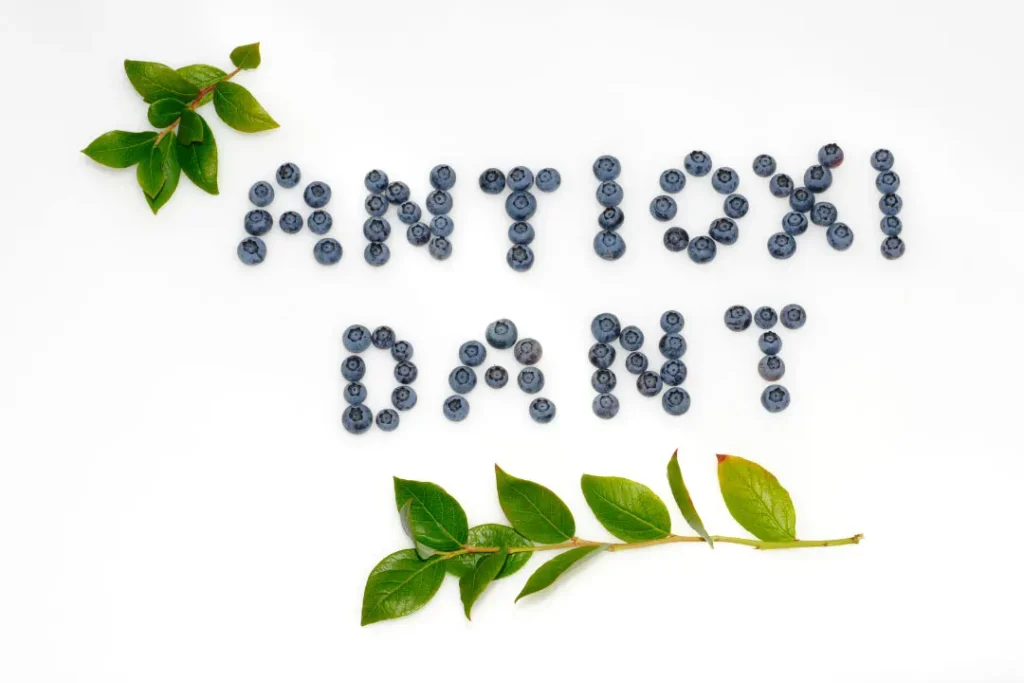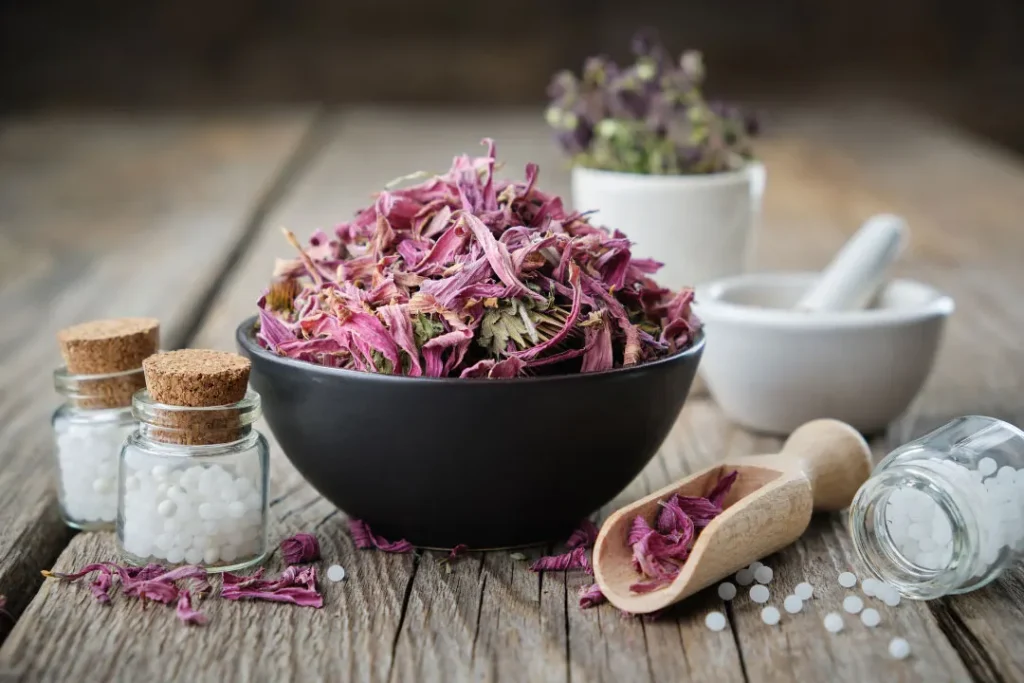Centaurea cyanus, sometimes referred to as cornflower, is a plant native to Europe that has earned recognition for its many healthful properties in both traditional and modern medicine. It has been consumed globally as a dietary supplement because of its numerous health advantages, such as its anti-inflammatory, antioxidant, and antibacterial qualities. Below you’ll find a comprehensive analysis of the supplement’s composition, health advantages, recommended dose, potential adverse effects, interactions, and proper usage.
You May Also Like:
Finding the Best Supplements for Brain Fog After COVID: 5 Top Brands Reviewed
Cognitive Health Extra Strength Supplement vs Medicine Man Plant Co.’s The Brain Pill
Cornflower: Benefits, Dosage, Side Effects, Drug Interactions, and Other Important Information is an original (NootropicsPlanet) article.
Nature of Cornflower
The cornflower plant has a variety of physiologically active substances that support its beneficial effects on health. The main chemical components of cornflower are flavonoids, polyphenols, and anthocyanins, each of which has specific chemical characteristics that provide the plant medicinal benefits. Particularly flavonoids are known for their strong antioxidant properties. They are formed by the binding of two aromatic rings by three carbon atoms to create an oxygenated heterocycle. They may donate hydrogen atoms thanks to their structure, neutralizing dangerous free radicals.
Health Benefits of Cornflower
Cornflower has a wealth of bioactive chemicals, creating a positive impact on your body’s physical wellbeing. Chronic inflammation—which is a normal reaction to tissue damage or infection—can cause numerous health problems. The flavonoids in cornflower are thought to have anti-inflammatory properties, as they prevent the synthesis of pro-inflammatory cytokines including tumor necrosis factor-alpha (TNF-alpha) and interleukin-1beta (IL-1), which reduces the inflammatory response.
A number of chronic illnesses are thought to be influenced by oxidative stress, which is caused by an imbalance between the body’s antioxidant defenses and the creation of reactive oxygen species (ROS). Cornflower has excellent antioxidant properties due to its high flavonoid and polyphenol content. These substances counteract ROS, lowering oxidative stress and avoiding cellular harm.
Additionally, various studies have emphasized the cornflower’s antimicrobial qualities. Its polyphenolic chemicals, which can damage microbial cell membranes and obstruct their development and proliferative processes, are responsible for these qualities.

Chemistry of Cornflower
Anthocyanins, flavonoids, and polyphenols may all be found in cornflowers. The primary active substances, flavonoids, are made up of two phenolic rings connected by a three-carbon bridge. They can act as antioxidants by scavenging damaging free radicals thanks to their structure.

Physiological Mechanisms of Action of Cornflower
At the physiological level, cornflower has several effects. Because of its capacity to suppress pro-inflammatory cytokines, it has the ability to reduce bodily inflammation. By scavenging reactive oxygen species, cornflower’s antioxidant properties lessen the effects of oxidative stress. Its capacity to damage microbial cell membranes, preventing their development and multiplication, may be the cause of its antibacterial capabilities.
Due to the abundance of flavonoids, polyphenols, and anthocyanins in cornflower, it has a number of health advantages. However, it’s important to utilize this supplement carefully and to be aware of any potential side effects and drug interactions. Future studies are required to fully understand cornflower’s potential for enhancing health and wellbeing.
Optimal Dosage of Cornflower
Depending on your overall health, age, body weight, and intended health advantages, the ideal dosage of cornflower might change dramatically. To select the most suitable dosage, speak with a medical expert before incorporating cornflower into your health regimen. As a general rule, doses of dried cornflower in the range of 1-2 grams per day, which are frequently ingested as a tea, are commonly documented in traditional medical usage and are regarded as safe.

Side Effects of Cornflower
Most people tolerate cornflower well and experience little adverse effects. However, some people may have allergic responses that cause respiratory or skin problems. High dosages may cause nausea, diarrhea, and other gastrointestinal problems. As always, contact your physician should you experience any of these side effects after using cornflower.

Potential Substance Interactions with Cornflower
Despite being a natural vitamin, cornflower may interact with some drugs. For instance, because cornflower has anti-inflammatory characteristics, it may be able to boost the effects of non-steroidal anti-inflammatory medicines (NSAIDs), which may raise the risk of adverse effects related to these treatments. Before beginning any new supplement, especially if you are using medication, it is imperative to speak with a healthcare professional.
Responsible Use of Cornflower
Understanding the characteristics, potential health advantages, and potential negative consequences of cornflower is necessary for its responsible usage. In especially for people with underlying health concerns or those using prescription drugs, it’s crucial to follow the advised dosage and always see a healthcare practitioner before beginning supplementation. Despite the cornflower’s potential health advantages, it should only be taken as a supplement to improve general wellbeing rather than as a replacement for a balanced diet and a healthy lifestyle.
Cornflower:
Conclusion
Incorporating cornflower into your daily health regimen can have powerful antioxidant effects and reduce bodily inflammation, which is great if you find yourself prone to things like joint pain or subject to poor environmental conditions. Cornflower has regularly been used in holistic medicine and its influence continues to grow worldwide. Take cornflower supplements only as directed, and use cornflower as a means of boosting your health and not for treating specific health issues. More studies on the effects of cornflower are still underway, so be sure to stay tuned to find out how this supplement can lead you to a more healthful existence.
References:
- Biological and Pharmacological Activities of Centaurea cyanus. Retrieved from: https://www.ncbi.nlm.nih.gov/pmc/articles/PMC5852722/
- Antimicrobial Properties of Plant Secondary Metabolites. Retrieved from: https://www.ncbi.nlm.nih.gov/pmc/articles/PMC6273146/
- Safety and Efficacy of Herbal Supplements: A Review. Retrieved from: https://jamanetwork.com/journals/jama/article-abstract/2755297
Important Note: The information contained in this article is for general informational purposes only, and should not be construed as health or medical advice, nor is it intended to diagnose, prevent, treat, or cure any disease or health condition. Before embarking on any diet, fitness regimen, or program of nutritional supplementation, it is advisable to consult your healthcare professional in order to determine its safety and probable efficacy in terms of your individual state of health.
Regarding Nutritional Supplements Or Other Non-Prescription Health Products: If any nutritional supplements or other non-prescription health products are mentioned in the foregoing article, any claims or statements made about them have not been evaluated by the U.S. Food and Drug Administration, and such nutritional supplements or other health products are not intended to diagnose, treat, cure, or prevent any disease.


